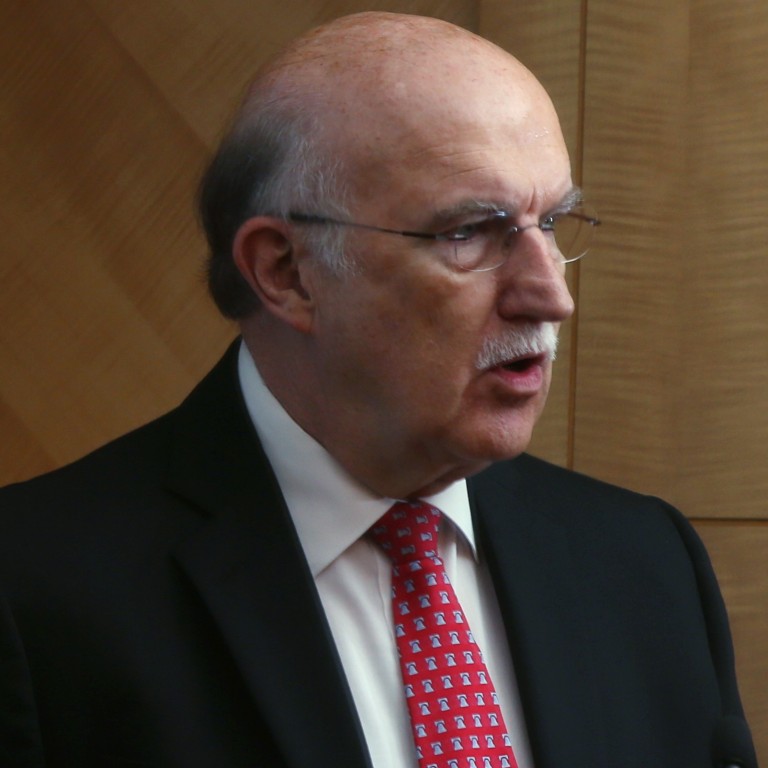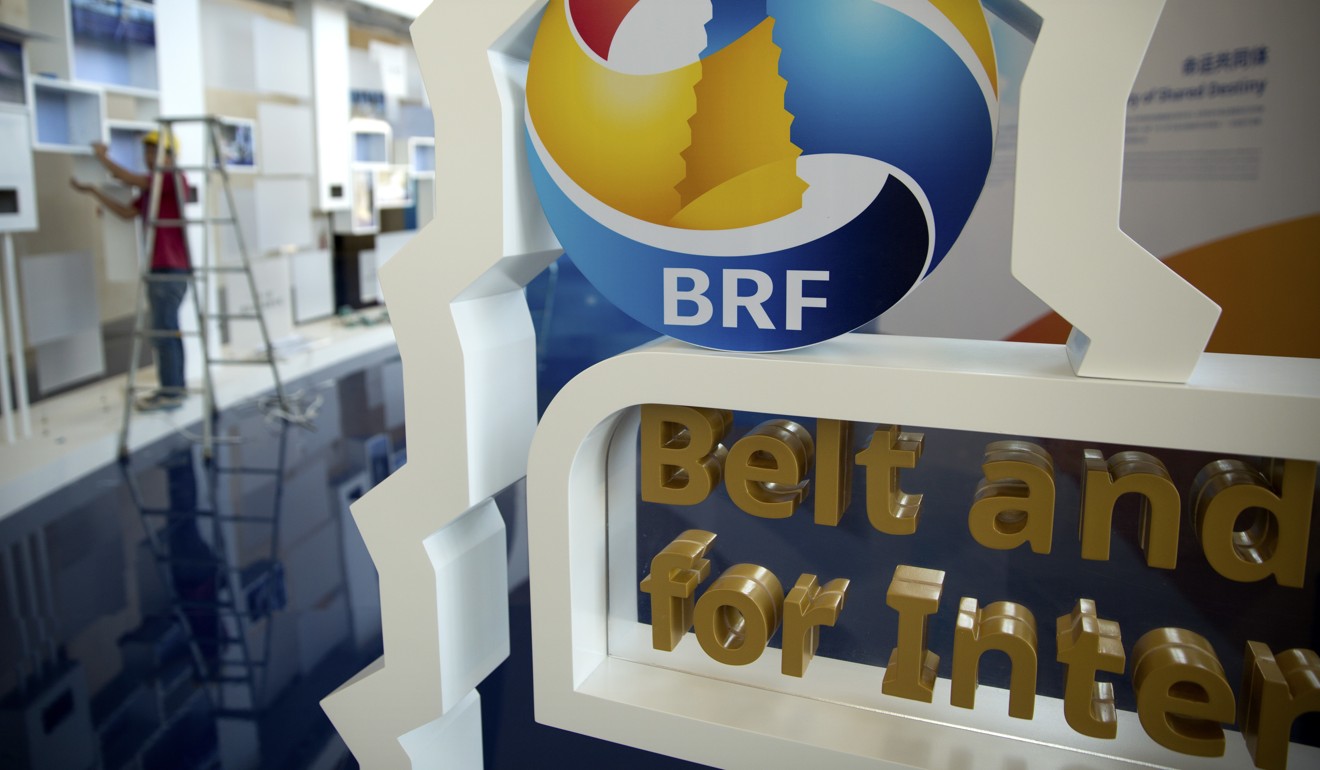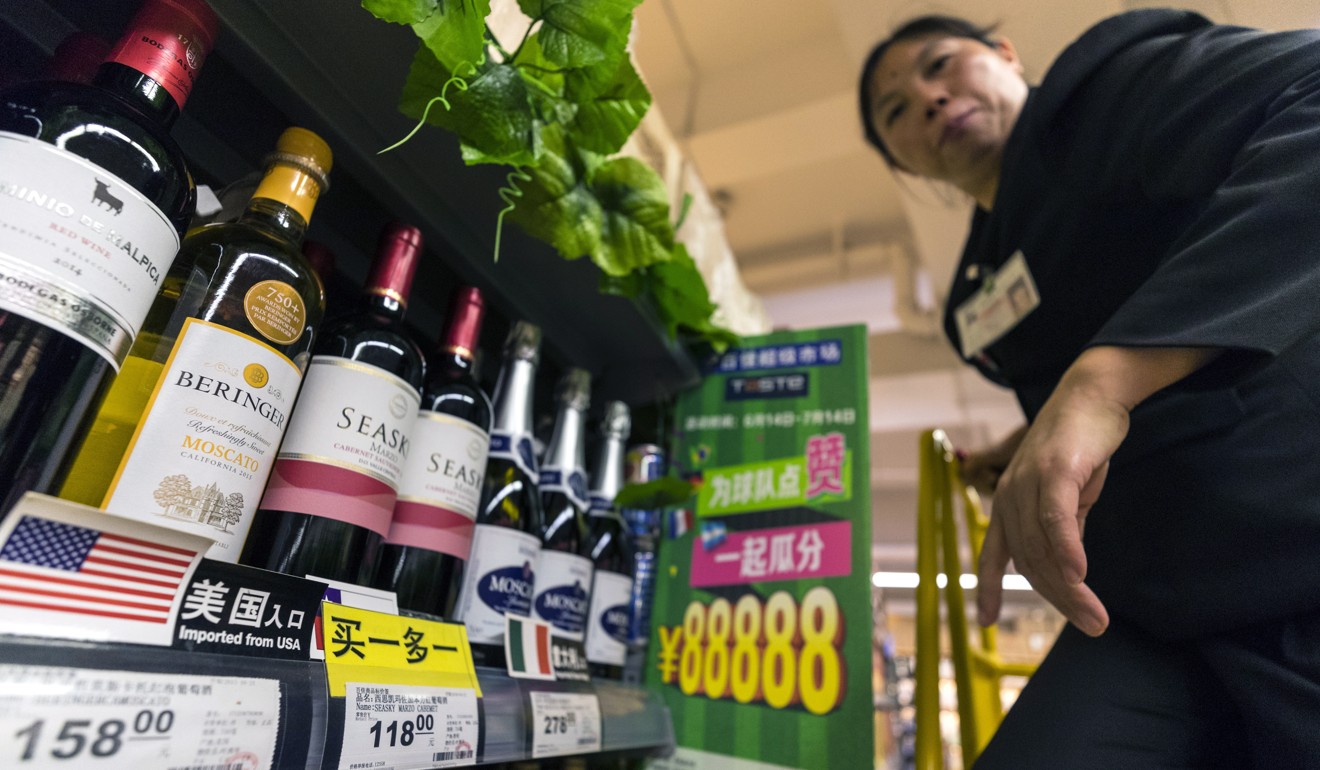
US must ease up on tariffs and ask allies to push China to more economic reforms, says Bush-era diplomat
- Terry Miller tells globalisation forum Trump must ‘find a tool’ other than tariffs
- Washington has stepped back from belt and road as it is a ‘Chinese show’, he says
A former US government official said the Trump administration should rely less on tariffs and work more with “like-minded countries” such as Japan and European Union states to push China towards economic reform.
At a forum hosted by the Centre for China & Globalisation in Beijing on Sunday, Terry Miller – a former US ambassador at the United Nations and former representative to the UN Economic and Social Council during George W. Bush’s presidency – also called on China to clarify the goals of its “Belt and Road Initiative”.
The call comes as China and the United States appear closer to a deal in their months-long tariff war but as expectations grow of rivalry between the two powers in other areas.
Miller said while the tariff war initiated by US President Donald Trump had the “good effect of causing a serious negotiation to take place”, it was time to move to a broader approach in pushing China for greater access to its markets.
“I would like [the Trump administration] to find another tool, and I would have preferred for the US to join with like-minded countries like Japan or members of the European Union who also are concerned about Chinese trade practices and make a joint approach to China,” said Miller, director of the Centre for International Trade and Economics at the Heritage Foundation, a conservative non-profit Washington-based think tank with ties to the Trump White House.
“I don’t really agree with imposition of tariffs. I think tariffs generally hurt the country that imposes them at least as much as they hurt the country on which they are imposed.
“I would say the tariffs at least had – they were disruptive – the good effect of causing a negotiation to take place. I think this has been a surprisingly serious negotiation between the United States and China.”
US-China trade war ‘still within control’, Beijing says, as trade gap widens due to soaring Chinese exports
China has already sought to go beyond tariffs to forge alliances of its own with like-minded parties. As Beijing braced for a prolonged conflict with Washington, it began courting countries that shared US concerns about market access but did not support Trump’s protectionist approach and had their own disputes with the United States over trade. Trump has threatened Japan and the EU with vehicle tariffs.
Jin Xin, director of the China Centre for Contemporary World Studies affiliated with the Communist Party’s International Liaison Department, said one option for the US was to better understand the “goodwill” behind efforts such as the Asian Infrastructure Investment Bank (AIIB), a Beijing-backed lender created to finance infrastructure projects.
“Chinese initiatives such as the AIIB are intended to promote equality in globalisation. American think tanks, academics, especially the government agencies, should not view them with prejudice and should see the good intentions behind them,” Jin said at the forum.

He said the US could work with China in third-country markets under the belt and road, otherwise the US would be “excluded” as it was from the AIIB. Despite Washington’s efforts to discourage other countries from joining the bank, it has signed up more than 90 countries, including US allies such as Britain.
But Miller said a lack of US interest in the belt and road was a result of the perception that it was mainly “a Chinese show”.
“I think for the Americans at this point, it’s just that it doesn’t have much to do with us – that would be the attitude,” Miller said. “And therefore, there’s not really a role for the United States in a forum like that.
The strengths and pitfalls of China’s Belt and Road Initiative, six years in
“And I think the attitude would be let the Chinese be in charge. Why should the United States be present at a forum for an initiative it was not part of?”
Washington said it would not send representatives to the belt and road summit this month.
During a panel session on Sunday, Miller said slogans intended more for domestic consumption in China, such as those on “Made in China 2025” or the belt and road, ran the risk of causing misunderstanding and apprehension in other countries when they were translated and broadcast overseas.
“If they [the Chinese] are more transparent about their goals, then the opportunities for misunderstanding will go away,” he said.


